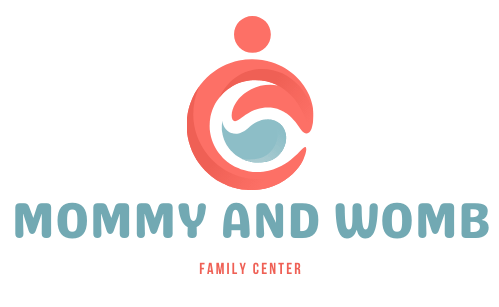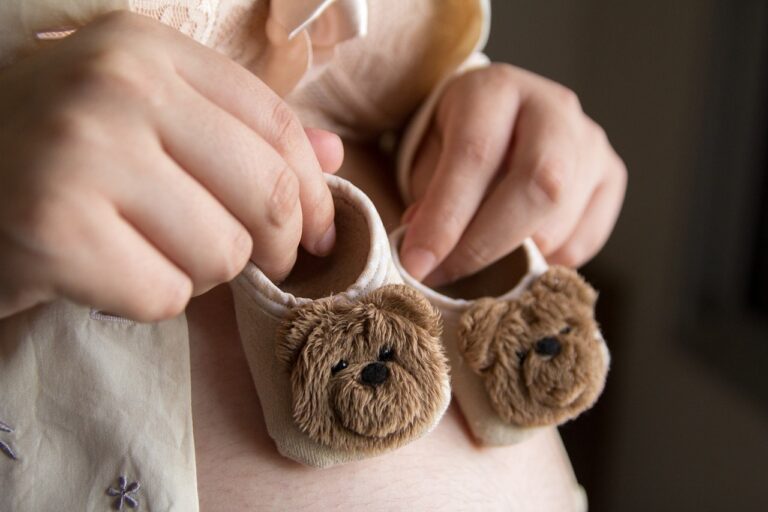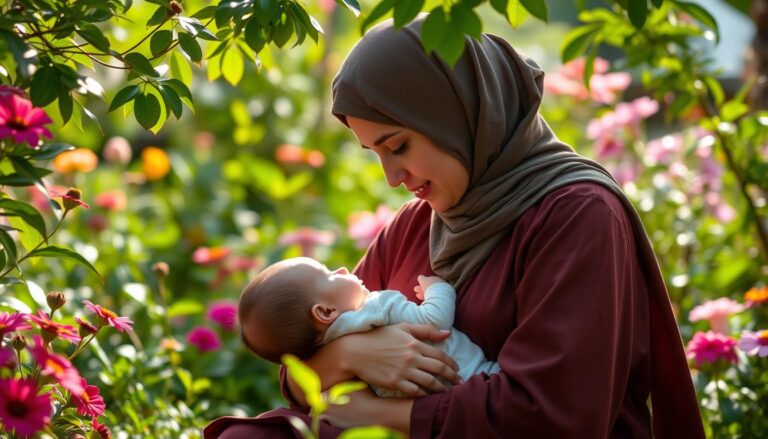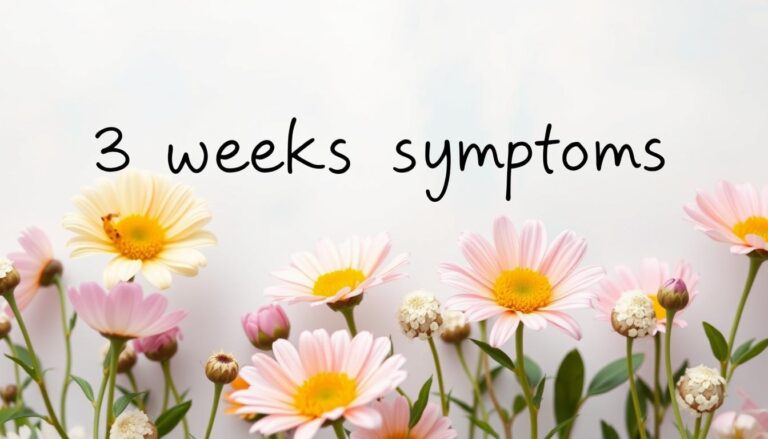3 Weeks Pregnant: Early Signs and What to Expect in 3 weeks pregnant / motherhood
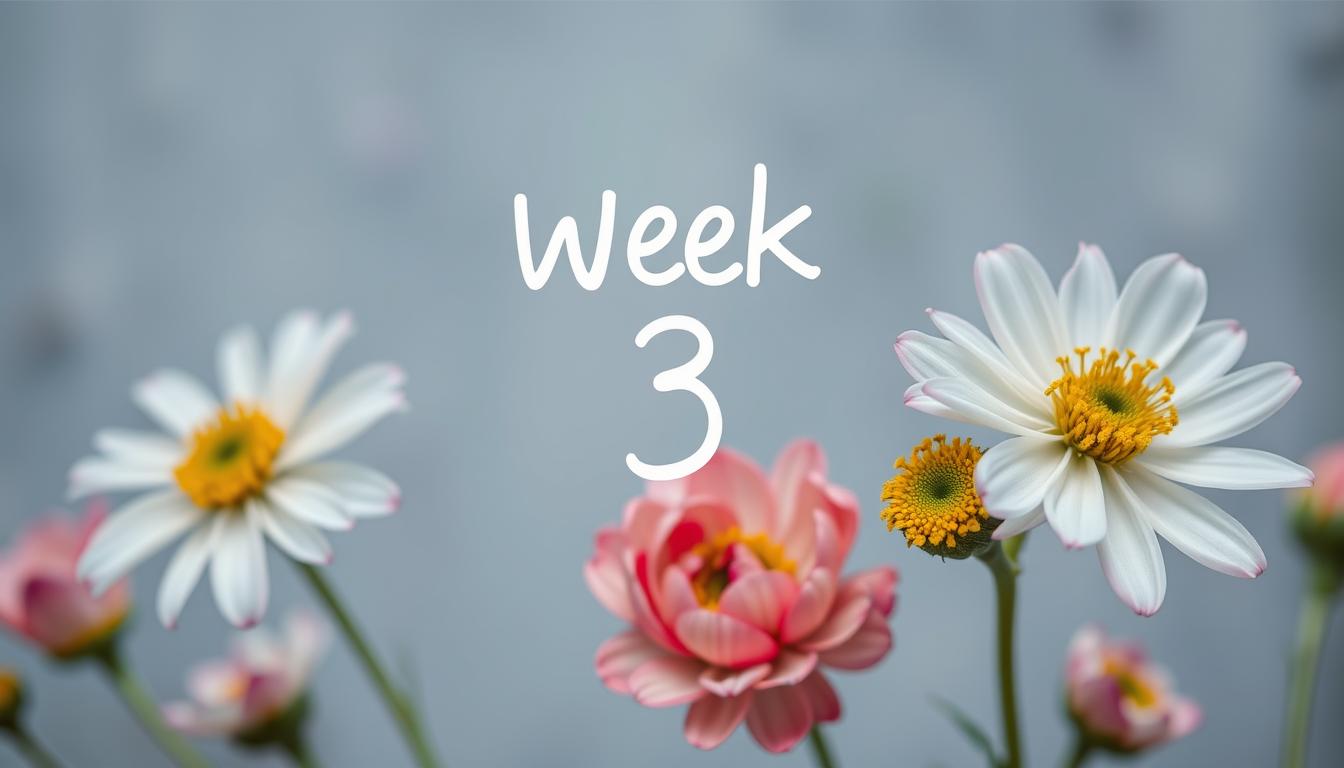
Your journey through pregnancy has officially started, even if you can’t confirm it yet at 3 weeks. The fertilized egg is growing fast and dividing as it moves from the fallopian tube to the uterine lining. You might not feel any obvious symptoms, but your body is changing a lot to support a new life.
This article will look at the early signs and changes at 3 weeks pregnant. It aims to help you understand what’s happening as you start this exciting journey to parenting and family life.
Table of Contents
Understanding the First Few Weeks of Pregnancy
At the start of your pregnancy, you might not know you’re pregnant yet. This is because the fertilization process usually happens 2-3 weeks after your last period. Your doctor will use this date to figure out when you’re due, which is usually 40 weeks later.
Calculating Your Due Date
Finding out when you’re due is key to tracking your pregnancy. While most pregnancies last 40 weeks, or 280 days, the actual birth date can vary. Only about 5% of women give birth on their due date. Your doctor will use your last period to estimate when your baby will arrive.
How Weeks, Months, and Trimesters Are Measured
Pregnancy is split into three parts: trimesters. The first trimester is weeks 1-13, the second is weeks 14-27, and the third is weeks 28-40. Knowing this timeline helps you get ready for each stage and the changes you and your baby will go through.
“Pregnancy is typically 40 weeks or 280 days long, but due to the complexities of calculating the gestational period, it can be confusing for individuals.”
Learning about your due date, the pregnancy timeline, and trimesters makes your pregnancy journey easier and more confident.
Potential Early Signs and Symptoms at 3 Weeks Pregnant
At 3 weeks pregnant, you might not see any clear signs yet. But, your body is changing a lot. Some women might feel light spotting or cramping, which could mean the fertilized egg is settling in the uterus. You might also notice a stronger sense of smell, feel really tired, or have sore breasts.
Not every woman will feel these early pregnancy symptoms. How strong they are can differ a lot. Healthy couples in their 20s or early 30s have a 25 to 30% chance of getting pregnant in one cycle. But, for those over 40, the chance is only 10% per cycle.
Implantation usually happens 6-12 days after fertilization. Some people might see light bleeding or spotting 1-2 weeks later. The HCG hormone, which is present during pregnancy, can also cause symptoms a few days after implantation.
If you’re trying to get pregnant or avoid it, the 2-week wait can be tough. Remember, no single symptom can prove early pregnancy. You need a pregnancy test for a sure answer.
Your Baby’s Development at 3 Weeks Pregnant
At 3 weeks pregnant, your baby is tiny, just a cluster of cells called a zygote. This is the start of their amazing journey. The fertilization process has just begun, where a sperm meets the egg. This moment decides your baby’s sex, with the father’s sperm carrying either an X or Y chromosome.
The Fertilization Process
The fertilization process is truly amazing. When the sperm meets the egg, their genetic material combines. This sets the stage for the incredible changes that will happen over the next 9 months. You won’t know your baby’s sex for a few more weeks, but their genetic blueprint is already set.
Determining Your Baby’s Sex
The sex of your baby is decided at conception. If the father’s sperm has an X chromosome, your baby will be a girl (XX). If it has a Y chromosome, your baby will be a boy (XY). This genetic foundation is the start of your baby’s development, including their reproductive organs and other sex-specific traits.
“Fetal development is a truly miraculous process, and the journey begins right from the moment of conception.”
As your pregnancy goes on, you’ll learn more about your baby’s growth. You’ll find out when you can see their sex through ultrasound or genetic testing. For now, know that the important foundations are being laid. Your little one is on their way to becoming a unique and amazing person.
Your Body’s Changes at 3 Weeks Pregnant
At 3 weeks pregnant, you might not feel many changes. But your body is working hard to get ready for the baby. The corpus luteum, a temporary structure, starts making important hormones. These hormones help the uterine lining and support the early stages of pregnancy.
The Role of the Corpus Luteum and Pregnancy Hormones
The rising hormones are key in the early days of pregnancy. The corpus luteum makes progesterone to keep the uterine lining thick and healthy. This helps the fertilized egg implant and grow. Estrogen levels also go up, leading to changes you’ll notice later.
Heightened Sense of Smell During Early Pregnancy
Many women notice a stronger sense of smell early on. This is due to the pregnancy hormones in your body. Some smells that were once mild can now be too much. This change in sense of smell is common and can be both good and bad.
As your body goes through these changes, listen to it and take care of yourself. Drink plenty of water, rest well, and talk to your healthcare provider if you have questions or concerns.
“Approximately 85% of pregnant individuals experience morning sickness to some degree during their first trimester.”
3 Weeks Pregnant: What You Might Experience
At 3 weeks pregnant, you might not see any clear signs of pregnancy. But some women feel lower abdominal pressure or mild cramping. This happens when the fertilized egg implants in the uterine lining. Also, a metallic taste in their mouth is common, caused by hormonal changes.
These early signs can mean your pregnancy is moving forward, even before a positive test. Remember, every pregnancy is different. Symptoms can vary in timing and intensity.
Lower Abdominal Pressure or Mild Cramping
When the fertilized egg implants, some women feel pressure or mild cramping. This is normal in early pregnancy. It shows the pregnancy is developing well.
Metallic Taste in Your Mouth
A metallic taste in the mouth, or “dysgeusia,” is another early sign. Hormonal changes in the first trimester cause it. It’s usually temporary and goes away as the pregnancy advances.
Every pregnancy is unique, and early signs can differ. If you’re worried or have questions, talk to your healthcare provider. They can offer personalized advice.
Lifestyle Adjustments to Consider at 3 Weeks Pregnant
Even before you know you’re pregnant, it’s time to start making healthy choices. Focus on getting the right nutrients and avoiding harmful substances. This helps your baby grow strong from the start.
Increasing Iron and Vitamin C Intake
Having a strong blood supply is key for your baby’s growth. Eat foods rich in iron like red meat, poultry, and leafy greens. Also, add vitamin C-rich fruits and veggies to boost iron absorption.
Avoiding Alcohol Consumption
Stay away from alcohol in the first few weeks of pregnancy. Even a little can harm your baby’s development and raise the risk of birth defects. By not drinking, you’re giving your baby a great start.
Every healthy choice you make early on matters a lot for your baby’s health. Stay informed, make smart choices, and work with your healthcare provider for a healthy pregnancy.
“Nutrition is the foundation for a healthy pregnancy, and it’s never too early to start making informed choices to support your baby’s growth and development.”

Coping with the “Two-Week Wait”
The “two-week wait” is a time of high pregnancy anxiety and hope for many. It’s key to manage stress and keep well-being in check during this period.
Try relaxing activities like yoga, meditation, or deep breathing exercises. Doing fun tasks and hobbies can also keep your mind off the two-week wait.
“The two-week wait can be one of the most challenging aspects of fertility treatment, lasting 336 hours or two weeks. It’s important to find healthy coping mechanisms during this time.”
Keeping a pregnancy journal can also help. It’s a way to express your feelings and deal with the ups and downs of the two-week wait.
Talking to friends, family, or online groups can offer great stress management support. Be kind to yourself and get the help you need during this time.
Using these strategies can help you handle the pregnancy anxiety and uncertainty of the two-week wait. Taking care of yourself now can make the early stages of pregnancy better and more enjoyable.
Understanding Your Odds of Having Twins or Multiples
The chance of having twins or multiples is low, about 3 in 100 births in the U.S. But, some things can make these chances higher. For example, if you have a family history of twins on your mom’s side. Or if you’ve had twins before. Or if you’re using fertility treatments, which often lead to multiple births.
Doctors can spot twins as early as seven weeks with an ultrasound. They can also tell by checking the pregnancy hormone levels. These levels are 30% to 50% higher in twin pregnancies than in single pregnancies.
If you think you might be having twins, talk to your doctor. This is important because it could change how you’ll care for your pregnancy and how you’ll give birth. Early checks and close monitoring can help make sure everything goes well for you and your babies.
“Over half of pregnant individuals who had an intuition about their baby’s sex were accurate, with a higher accuracy rate for those reporting a very strong sense of intuition.”
Pregnancy intuition might also help guess if you’re having twins. Some people feel a strong sense that they’re having twins. But, always trust what your doctor says for sure.
The number of twins born in the U.S. has gone up a lot. From 1980 to 2020, it rose by nearly 72%. This is because more women are having babies later in life and more are using fertility treatments.
While having twins or multiples might sound exciting, it also brings special challenges and risks. Always work with your doctor to make sure you and your babies are doing well.
When to Take a Pregnancy Test
Are you excited to know if you’re pregnant? It’s tempting to take a pregnancy test right away. But waiting until after your missed period is best for accurate results. This is because the pregnancy hormone, human chorionic gonadotropin (hCG), takes time to reach detectable levels in your urine or blood.
Home pregnancy tests say they can find hCG as early as 3 weeks. But these early results might not always be reliable. For the clearest positive, wait until the week of your expected period or later.
If you can’t wait, your doctor can do a blood test. Blood tests can find hCG sooner than urine tests, sometimes as early as 9-12 days after conception.
When you do take a test, do it first thing in the morning. Your urine is more concentrated then, making results more accurate. Always follow the instructions carefully. Things like expiration date, how hydrated you are, and the test’s sensitivity can affect the results.
Remember, while home pregnancy tests claim an accuracy rate of up to 99%, false negatives and false positives can still occur. The best time to take a test is a week after your missed period for the most reliable results.
So, if you think you might be pregnant, be patient. Wait until the right time to take a test. Your little one will arrive before you know it!
Conclusion
The first few weeks of pregnancy can be both uncertain and exciting. Your body is changing to support a new life. Even if you don’t feel obvious symptoms at 3 weeks, big changes are happening. These changes help your baby grow.
By understanding early pregnancy and making healthy choices, you’re giving your baby a great start. This is a time to focus on your health and your baby’s development.
As you move forward, stay informed and get support from your healthcare provider. This journey is special, and every pregnancy is different. Trust your body and enjoy this time.
Whether it’s your first child or you’re adding to your family, this stage is important. Embrace the changes and celebrate the small victories. Your 3 weeks pregnant experience is just the start of an amazing journey.
If you want to read about the fourth week, click on the link below
https://www.mommyandwomb.com/4-weeks-pregnant-2/
